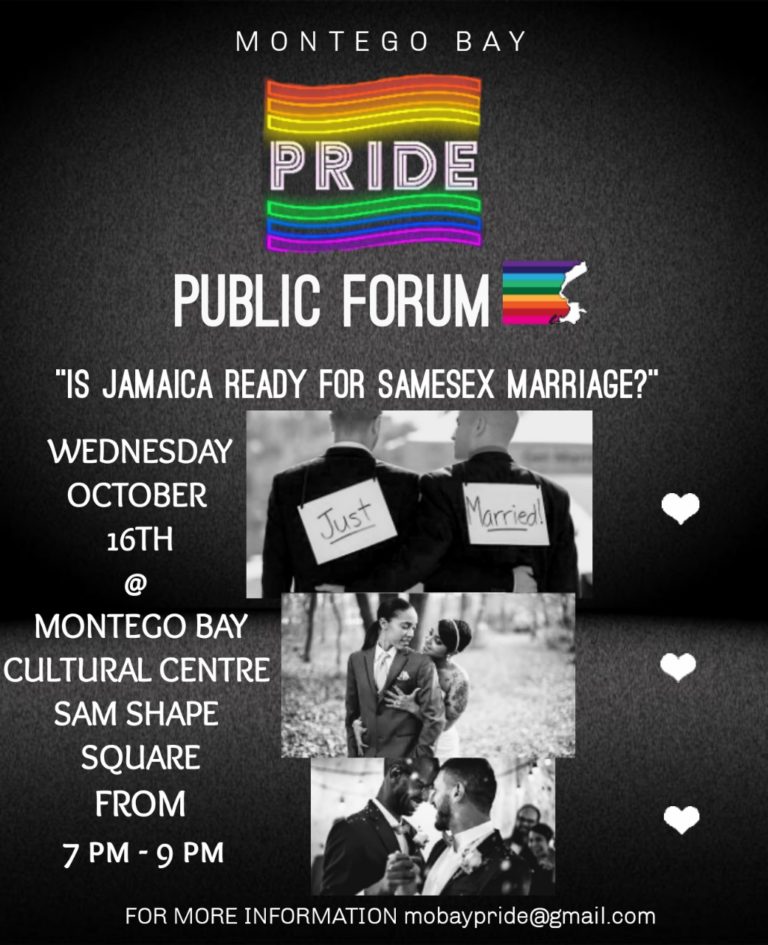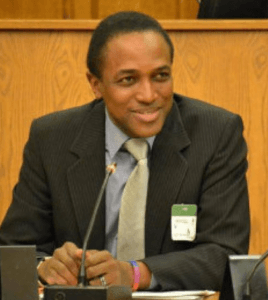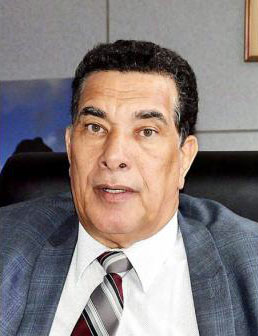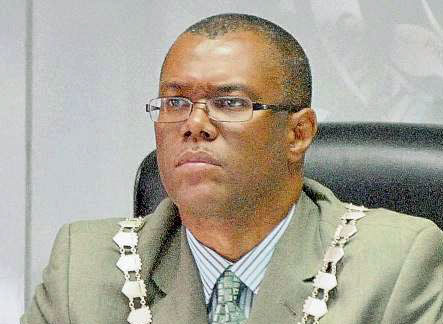Censorship in Jamaica could lead to a lawsuit
Colin Stewart is a 45-year journalism veteran living in Southern…
The mayor of Montego Bay in Jamaica has risked a lawsuit by blocking a public forum on whether the country is ready for same-sex marriage.

Mayor Homer Davis, who has jurisdiction over the Montego Bay Cultural Centre, claimed that even asking the public such a question would violate the Jamaica constitution.
In response, Montego Bay Pride, which planned the forum, said it is considering whether to take him to court. An editorial in the Jamaican Gleaner urged it to do so.
In a press release, Montego Bay Pride stated:
Montego Bay Pride considers legal action against mayor
Planning Committee of Montego Bay Pride considers legal action for Mayor’s ban on Public Forum.
September 14, 2019 — The planning committee of Montego Bay Pride is shocked and dismayed by the decision of the city’s Mayor and Chair of the Montego Bay Cultural Centre (MBCC) Homer Davis, to ban us from hosting any of our events at the Centre, which is located in the heart of the city.

The mayor’s actions were apparently triggered by our Facebook advertisement for an October 16 public forum at the MBCC under the theme: “Is Jamaica ready for same-sex marriage?” The Mayor reportedly based his decision on a purported need to protect the “sacredness” of the MBCC from gay marriage. However, this forum is not a promotion of gay marriage but an invitation to a public discussion on this very topical issue. By October 15 the Jamaican government must respond to a petition before the Inter-American Commission on Human Rights Challenging the constitutional ban on same-sex unions, including marriage.
Mayor Davis reportedly took action after being pressed to do so by former mayor, Charles Sinclair, who in a Facebook post last year also questioned our right to host an LGBT film festival as part of Montego Bay Pride.
Montego Bay Pride, which is now in our fifth year, is scheduled for October 13-20. Our grassroots festival has grown from just under 150 persons in 2015 to over 1,500 local and international guests last year. Among other things, we seek to engage and educate the citizens of the second city about the human rights of LGBT Jamaicans. As such, we have always hosted a public forum on a topical issue concerning LGBT human rights, such as a 2017 forum at the MBCC on the church and the anti-buggery law.
These forums are an opportunity for all views to contend and Montego Bay Pride has been proud to collaborate with MBCC to facilitate these open and frank dialogues. The MBCC has been an ideal location to host these discussions that touch on the legal rights of vulnerable Jamaicans because of the building’s accessibility to most residents of the city, as well as the significance of the MBCC as a former court house located in the square named after Montego Bay’s most celebrated human rights champion, National Hero Sam Sharpe.

Founder and current director of development of Montego Bay Pride, Maurice Tomlinson, said that the mayor’s actions amounted to an “arbitrary and unconstitutional attempt to stifle the right to freedom of expression of Jamaican citizens.” According to Tomlinson, “instead of encouraging dialogue on a contentious issue the mayor decided to shut down a democratic debate, which as an elected politician, the mayor must know is the lifeblood of Jamaica’s democracy.”
The theme for this year’s forum was chosen because of the significant media attention that Tomlinson’s petition challenging the same-sex marriage ban has received. The organizers of Montego Bay Pride felt that the voices and views of ordinary Jamaicans were overlooked and ignored in this important national and global debate. Tomlinson stated that it was “perverse” that the city’s mayor would seek to quash the fundamental right to free expression of his citizens at a facility controlled by the city. Tomlinson is therefore calling on the mayor to reconsider and reverse his decision.
Sharlene Kessan-Duncan is the coordinator of Montego Bay Pride. She said that: “The mayor’s attempt to censor the voices of citizens reflects very badly on him and the city. It will also cause visitors to our vital tourism industry to question Montego Bay’s claim to be the “Friendly City” if we can’t even allow a free discussion on a topical issue.” Kessan-Duncan echoed Tomlinson and said that: “This forum is meant to include all voices, such as those religious groups opposed to same-sex marriage. And nothing can be more “sacred” to our country than the right to free speech. That is the healthy way to develop and sustain our democracy, not through the autocratic curtailing of debate.”
In light of the far-reaching implications of the Mayor’s actions, including the potential chilling effect on free speech and other constitutional rights, Montego Bay Pride is reviewing our legal options to ensure that this forum goes ahead as planned. We also implore all Montegoians with views on this sensitive issue to join in calling for the Mayor to reverse his decision and allow this critical dialogue to be accommodated at the MBCC.
The Gleaner said in an editorial on Sept. 15:
Inane nattering by MoBay’s Davis, Sinclair

Hopefully, the group Montego Bay Pride is a juristic person, in which event it should seek an injunction against the St James Municipal Corporation and its chairman, Homer Davis, to prevent them their constitutionally guaranteed right to free speech, to hold and exchange ideas, as well as the right to peaceful assembly. Alternatively, they should find someone who has an interest in the matter to bring the case before the Constitutional Court.
Further, Mr Davis should be sued in both his personal and private capacities as part of a test of Jamaica’s adherence to the guarantees laid out in its Charter of Fundamental Rights and Freedoms and the elasticity of the courts in entertaining complaints of breaches of the undertakings therein.
We know little about Montego Bay Pride, except that it is an organisation that promotes and protects the interests of the LGBTQ community in St James, and especially the parish’s capital, Montego Bay. Apparently, in keeping with its mandate, the group intends to hold a series of activities in the city, including at the Montego Bay Cultural Centre, which is owned and managed by the parish government.
It is not clear whether Montego Bay Pride has as yet formally applied to use the centre, although, city officials suggest, it has advertised events for the venue, including in the square adjacent to the cultural centre. The matter was brought to Mr Davis’ attention at a meeting of the council on Thursday by a member, Charles Sinclair, a lawyer who is also a government member of the national Senate.
What happened next was, in our view, an arbitrary foreclosure of the rights of one category of citizens, which ought to be tested before the courts. Mr Davis, who, by virtue of his chairmanship of the council, also has the title of mayor of Montego Bay, seems to have had a hazy notion of some event planned for the cultural centre, but not who was putting it on. Yet he declared: “… I will not give any permission for it (the event to be held at the centre).”
Evangelical, proselytising mode
Further, he went into preachy, fundamentalist, evangelical proselytising mode. “We must not do anything to disturb the sacredness and purpose of why that building is there. People have their rights, and they can do what they want to do, but you must respect the rights of other people, too,” said Mayor Davis.
A not-unreasonable interpretation of Mayor Davis’ statement is that he believes that the presence of gays, lesbians, bisexuals and transgender people at the Montego Bay Cultural Centre will debase, despoil and, somehow, stain the facility. It will be bombarded with fire and brimstone, perhaps.
There are several important contexts to these observations. First, Section 13 (3) (c) (d) and (e) of Jamaica’s Constitution guarantees, respectively, the following rights:
• The right to freedom of expression;
• The right to seek, receive, distribute or disseminate information, opinions and ideas through any media; and
• The right to freedom of peaceful assembly and association.
Further, the Montego Bay Cultural Centre is a public, not a private, resource, built and funded by all taxpayers, all of whom, regardless of sexual orientation, are entitled to all the rights guaranteed by the Constitution, the inane logic of Mr Sinclair notwithstanding.

Based on Mr Sinclair’s logic, an LGBTQ event at a “building controlled by the municipal corporation”, at which same-sex marriage may be promoted, is anathema to the Constitution. “It is inconsistent with the mandate that we have,” he said.
Jamaica’s Constitution does, indeed, define marriage as a union between one man and one woman, and the buggery law makes anal sex illegal. But there is nothing unconstitutional about advocating for their change, no matter where that advocacy takes place. Indeed, discourse and debate are critical elements of democracy, which is why they are constitutionally guaranteed.
What is unconstitutional is the arbitrary abrogation of these rights by the State or its agents, and in cases where infringements are not reasonably required for the functioning of a democratic society. We would also remind the St James Municipal Corporation, and others, that the Constitutional Court made clear in a 2013 case involving the gay activist, Maurice Tomlinson, that abrogation of a person’s constitutional rights by a private individual is justiciable. Messrs Davis and Sinclair should take note.
Related articles:
- Jamaica: Don’t block our discussion of same-sex marriage, 76crimes.com)
- Jamaican newspaper backs bid for same-sex marriage (
- Activist petitions for right to same-sex marriage in Jamaica (
This article was revised Sept. 16 to correct the date of the press release.




Jamaica: Don’t block our discussion of same-sex marriage